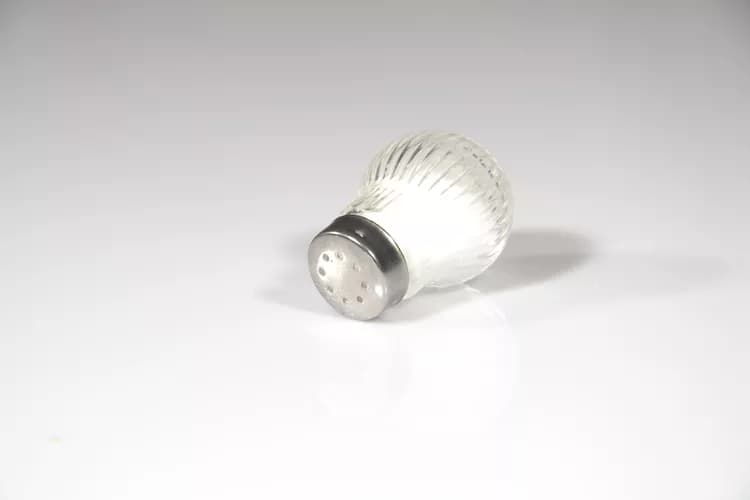What are the other Names for this Test? (Equivalent Terms)
- Na Blood Test
- Na+ Blood Test
What is Sodium Blood Test? (Background Information)
- Sodium cation (Na+) is an electrolyte essential to proper organ and muscle function. It plays a vital role in the transmission of electrical impulses. It also helps regulate osmotic forces between cells and their surrounding fluid
- Electrolytes are chemicals that dissociate in solution and conduct an electrical current. They are important to the body’s acid-base, electrical, and hydrostatic stability
- Electrolytes are mainly acquired through the diet. Major electrolytes include sodium (Na+), potassium (K+), chloride (Cl-), bicarbonate (HCO3-), and phosphate (HPO42-)
- Sodium is the most abundant cation, or positively-charged ion, in the fluid surrounding cells. Na+ is the dissolved, and biologically relevant, version of Na. (Note: Sodium metal, or Na, explodes upon contact with water)
- One reason electrolytes are important is their electrical conductivity. Electrically active cells, such as muscle cells and neurons, rely on electrolytes to transmit electrical impulses vital to their function
- Another reason electrolytes are needed is that they allow cells to regulate the flow of water, across their membranes. This is called osmotic regulation. Osmotic regulation protects cells from bursting due to an influx of water, if their surroundings lack salt
- Other electrolytes, such as phosphate and bicarbonate, act as buffers in the body. Buffers help body fluids, like blood, maintain a narrow pH range in the face of fluctuating levels of acidifying and alkalizing byproducts
- Certain hormones regulate sodium levels by affecting, how much sodium is excreted through urine. Natriuretic peptides increase sodium excretion through urine, while aldosterone decreases it
- A decrease in sodium excretion means sodium is present in blood at a higher concentration. This causes thirst and the retention of water, which ensures proper hydration. Natriuretic peptides have the opposite effect
- The Sodium Blood Test is a test to measure the levels of dissolved sodium in blood. It is a routinely ordered test that provides information about a possible electrolyte unbalance, which could cause a variety of ailments
What are the Clinical Indications for performing the Sodium Blood Test?
Following are the clinical indications for performing a Sodium Blood Test:
- Routine physical exam
- As a follow-up to various other tests
- Monitoring the effects of diuretic drugs
- Abnormal blood pressure
- Muscle twitches and spasms
- Muscle fatigue
- Nausea and vomiting
- Diarrhea
- Abnormal heart rhythms
- Large changes in the amount of urine produced
- Significant trauma and/or blood loss
- Altered mental status
How is the Specimen Collected for Sodium Blood Test?
Following is the specimen collection process for Sodium Blood Test:
Sample required: Blood
Process: Insertion of a needle into an arm vein.
Preparation required: No special preparation is needed prior to the test.
What is the Significance of the Sodium Blood Test Result?
The significance of Sodium Blood Test is explained:
- High levels of sodium may indicate:
- Cushing’s disease
- Cushing’s syndrome
- Dehydration
- Diabetes
- Hyperaldosteronism
- Lactic acidosis
- Low levels of sodium may indicate:
- Central nervous system disease
- Congestive heart failure
- Cystic fibrosis
- Excessive antidiuretic hormone production
- Excessive diuretic use
- Metabolic acidosis
- Nephrotic syndrome
The laboratory test results are NOT to be interpreted as results of a "stand-alone" test. The test results have to be interpreted after correlating with suitable clinical findings and additional supplemental tests/information. Your healthcare providers will explain the meaning of your tests results, based on the overall clinical scenario.
Additional and Relevant Useful Information:
- Certain factors may interfere with the results of the Sodium Blood Test. These include pregnancy and diet, immediately prior to performing the test
Certain medications that you may be currently taking may influence the outcome of the test. Hence, it is important to inform your healthcare provider, the complete list of medications (including any herbal supplements) you are currently taking. This will help the healthcare provider interpret your test results more accurately and avoid unnecessary chances of a misdiagnosis.
Related Articles
Test Your Knowledge
Asked by users
Related Centers
Related Specialties
Related Physicians
Related Procedures
Related Resources
Join DoveHubs
and connect with fellow professionals


0 Comments
Please log in to post a comment.